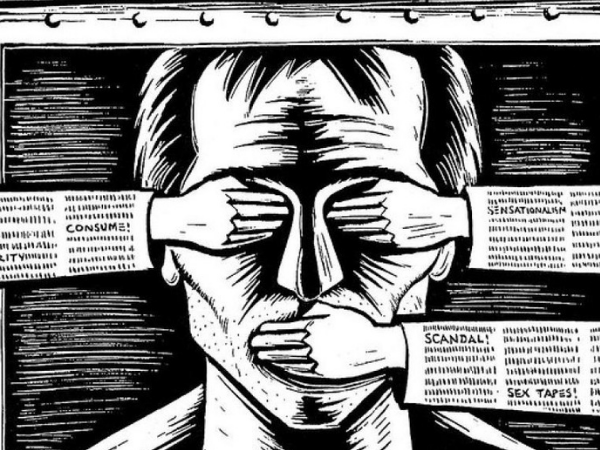
WASHINGTON, D.C. — The Rutherford Institute is warning against a growing cancel culture mindset within government agencies across the political spectrum that seeks to censor, ostracize and shun those with opposing, disfavored, or politically unpopular viewpoints.
Weighing in before the U.S. Supreme Court with an amicus brief in NRA of Am. v. Vullo, The Rutherford Institute, FIRE, the National Coalition Against Censorship, and the First Amendment Lawyers Association are challenging efforts by a New York state regulator to circumvent the First Amendment and indirectly penalize the National Rifle Association by pressuring regulated insurance companies to disassociate from and stop offering certain services to the pro-gun advocacy group.
“Knowing what we know about the government’s tendency to attach its own labels to behavior and speech that challenges its authority, these efforts to ostracize those with politically unpopular viewpoints should be cause for alarm across the entire political spectrum,” said constitutional attorney John W. Whitehead, president of The Rutherford Institute and author of Battlefield America: The War on the American People. “Whatever government-driven censorship we tolerate now are destined to serve as the building blocks for greater acts of tyranny.”
In October 2017, the New York State Department of Financial Services (DFS) opened an investigation into an NRA-endorsed insurance program called “Carry Guard,” which provided coverage for losses caused by licensed firearm use, including criminal defense costs resulting from the intentional use of a firearm in wrongdoing, which was a violation of New York law. DFS Superintendent Maria Vullo met with one of the insurance companies under investigation, which was facing millions in fines, and explained how the company could come into compliance, including by no longer providing insurance to gun groups like the NRA. Vullo also sought the company’s aid in DFS’s campaign against gun groups following the February 2018 school shooting in Parkland, Florida. Later, Vullo called upon banks and insurance companies doing business in New York to consider the risks, including reputational risks, which might arise from doing business with the NRA, urging them to join others that had discontinued their associations with the NRA. Multiple entities publicly severed their ties or determined not to do business with the NRA.
In response, the NRA filed a First Amendment lawsuit against Vullo. While the district court would have allowed that claim to proceed to trial, the Second Circuit Court of Appeals ordered the case to be dismissed. Noting that government officials can address issues of public concern as long as they do not use their regulatory powers to coerce entities into refraining from protected speech, the Second Circuit concluded that Vullo did not appear to have crossed the line between proper attempts to convince and improper attempts to coerce. But pointing to Vullo’s words, the perception of a threat for companies continuing to do business with the NRA, and the power of DFS’ regulatory authority as factors showing improper coercion to indirectly censor the NRA, the amici are urging the Supreme Court to make clear that government officials cannot sidestep the First Amendment by framing censorship demands as informal requests.
Robert Corn-Revere, Ronald G. London, Will Creeley, and Joshua A. House with FIRE advanced the arguments in the amicus brief in NRA v. Vullo.
The Rutherford Institute, a nonprofit civil liberties organization, provides legal assistance at no charge to individuals whose constitutional rights have been threatened or violated and educates the public on a wide spectrum of issues affecting their freedoms.
 RSS Feed
RSS Feed















 January 22nd, 2024
January 22nd, 2024  Awake Goy
Awake Goy  Posted in
Posted in  Tags:
Tags: 













